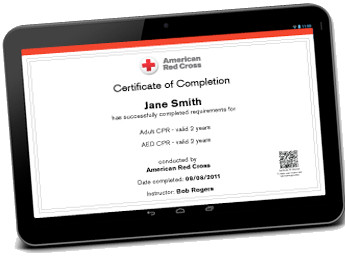Maintaining your CPR certification is not just a formality; it’s a commitment to being prepared to save lives. CPR recertification courses are designed to refresh your knowledge, update your skills, and ensure you’re current with the latest CPR techniques. If your CPR certification is nearing its expiration, enrolling in a Cpr Renewal Online course is a convenient and efficient way to extend your certification and enhance your life-saving abilities. These abbreviated courses are specifically tailored for individuals with valid but soon-to-expire credentials, requiring less time than initial certification classes while still providing comprehensive training to maintain your certification for another two years.
How CPR Renewal Online Works
Renewing your CPR certification online offers flexible learning options to suit your schedule and learning preferences. You can opt for a blended learning approach, which combines the convenience of online study with essential in-person, hands-on skills training. This method allows you to complete the theoretical portion of the course online at your own pace and then attend a practical session to solidify your skills under the guidance of a certified instructor. To find a blended learning class or explore fully online CPR safety courses, you can easily search for available options in your area through reputable providers like the American Red Cross. Registration is typically quick and straightforward, enabling you to take the first step towards renewing your ability to provide critical care during cardiac or breathing emergencies.
The Importance of Regular CPR Skill Refreshment
The American Red Cross Scientific Advisory Council emphasizes the critical need for regular CPR skill renewal. Research indicates that CPR skill retention begins to decline within months after the initial training. This decline continues over time, with studies showing that less than half of trained individuals can pass a CPR skills test just one year after their certification. This means that even well within your two-year CPR certification period, your ability to effectively respond in a life-threatening situation may diminish without regular practice and updates.
To combat skill fade and stay prepared with essential preparedness information, consider utilizing resources like the FREE Red Cross Mobile Apps. These apps offer readily accessible information and guidance to keep your knowledge fresh between certification courses.
 Red Cross certification of completion on a tablet
Red Cross certification of completion on a tablet
A digital CPR certification from the American Red Cross displayed on a tablet, highlighting the ease of access and digital format of the certification.
Simple, Fast, and Digital Certification
The American Red Cross streamlines the CPR certification process, making it fast, simple, and easily accessible online. Red Cross Digital Certificates provide you with 24/7 access to your certification records, enabling you to print, share, and download your certificates whenever and wherever needed. These digital certificates are easily accessible through your Red Cross Account and each includes a unique ID and QR code. This system not only meets employment verification requirements but also allows employers to quickly and easily confirm the validity of your certification. Employers or individuals can verify a certificate’s authenticity by visiting the Red Cross digital certificate verification page and entering the ID found on the certificate or by scanning the QR code with a smartphone or tablet.
For detailed instructions on how to access your CPR certification and digital certificate, resources are readily available online.
Frequently Asked Questions About CPR Renewal Online
What is the most effective method for CPR renewal online?
Various options are available for CPR renewal, including in-person classes, fully online courses, and blended learning formats that combine online and in-person training. In-person classes offer direct interaction with instructors and hands-on skills practice, ideal for those who prefer traditional classroom environments. Blended learning provides a flexible alternative, allowing you to learn the theoretical aspects online at your own pace before attending a hands-on skills session. While fully online courses offer convenience, it’s important to note that those without an in-person skills component may not meet certification requirements for workplace settings. For official workplace CPR certification, blended or in-person courses are generally recommended.
How long does a CPR certification remain valid?
Upon successful completion of a CPR training course, your certification is typically valid for two years. To maintain continuous certification and stay current with the latest CPR guidelines, CPR renewal courses are available. These renewal courses, often labeled as “Review” or “Challenge” courses, are designed to update your skills efficiently and extend your certification period.
What is the duration of a CPR renewal class?
The time commitment for a CPR class varies depending on the format you choose—online, in-person, or blended learning. In-person classes and the practical skills sessions in blended learning are typically completed within a few hours. Fully online courses are self-paced, allowing you to complete the training in one session or spread it out according to your schedule. Regardless of the format, you can find a CPR renewal option that fits your lifestyle and learning style.
What distinguishes BLS from CPR?
While both CPR and Basic Life Support (BLS) training address life-saving techniques, BLS is specifically designed for healthcare professionals and first responders. Red Cross BLS courses offer a comprehensive, evidence-based curriculum that goes beyond basic cardiac response, providing more in-depth training to meet the rigorous requirements of professional medical environments. BLS certification is often a requirement for healthcare employment, credentialing, and professional privileges. For those in healthcare or emergency medical services, BLS training is essential, whereas CPR certification is a foundational safety skill beneficial for individuals in various workplace and community settings.
Is there a practical skills evaluation in CPR renewal courses?
Yes, in-person and blended learning CPR renewal courses include a hands-on skills session where you will need to demonstrate your CPR proficiency. Successful completion of this in-person skills assessment is a necessary component to receive official CPR certification. This practical evaluation ensures that you can effectively apply the learned techniques in a real-life emergency scenario.
